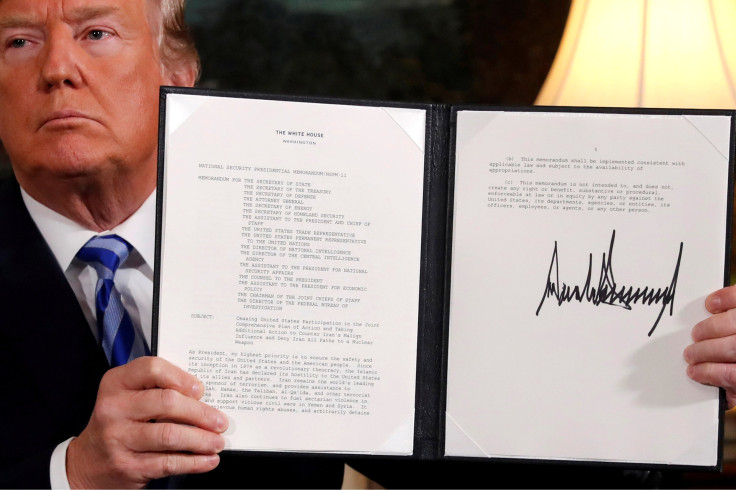Is Donald Trump Prepared To Wreck The Historic Alliance With Europe Over Iran?
Growing tensions over President Donald Trump's decision to pull out of the Iran nuclear deal is threatening to put unprecedented strain on the post-war transatlantic alliance.
As European powers and Tehran committed to keep working together to rescue the 2015 deal, the hawkish White House National Security Adviser, John Bolton said it's "possible" the United States would impose sanctions on European companies that continue to do business with Iran. In the CNN interview he went on to say it was dependent on "the conduct of other governments."
The veiled threats did not stop a London-based consortium of international companies striking a deal to develop an oilfield in Iran for 655 million barrels of oil in the southwestern Kernaj field.
It was the first such contract since Washington withdrew from a nuclear agreement on May 8 and said it would reinstate sanctions on Tehran. National Iranian South Oil Company (NISOC) signed a so-called heads of agreement (HOA) worth $1 billion with London-based Pergas, the oil ministry’s news agency SHANA said.
The news came as French oil giant Total threw in the towel in relation to a multi-billion-dollar project in Iran unless it is granted a waiver by U.S. authorities.

The strain now being placed on the historic relationship between the western European states and the U.S was highlighted by the former ExxonMobil CEO Rex Tillerson who was U.S. secretary of state before being fired over Twitter by President Trump.
Tillerson did not mention the president by name but alluded to policies of the Trump administration by decrying those who neglect or ignore long-standing allies or deny that free trade is an engine of global growth.
"We must never take these long-held allies for granted," he told to graduates of the Virginia Military Institute, in an apparent reference to Trump overruling the advice of his former top diplomat and others over Iran and threatening import tariffs.
Meanwhile, European countries are considering dumping the dollar in favour of the euro when it comes to making payments to Iran for its crude oil, Russian media reported, citing a diplomatic source who had knowledge of the development.
"I'm privy to the information that the EU is going to shift from dollar to euro to pay for crude from Iran," the diplomatic source reportedly told Russian news agency RIA Novosti.
According to AP, President Emmanuel Macron is seeking to diffuse the threat of a trade war against the U.S., despite Paris' disapproval of President Trump's decision to scrap the nuclear deal.
"We're not going to choose one camp over another. We're not going to be the allies of Iran against the United States of America", Macron said in a news conference in Sofia, Bulgaria.
About 450,000 barrels per day of crude oil is exported by Iran to Europe, while another 1.8 million bpd or so is exported to Asia, according to Iran's Press TV. The biggest importer of Iranian oil is China.
© Copyright IBTimes 2025. All rights reserved.





















